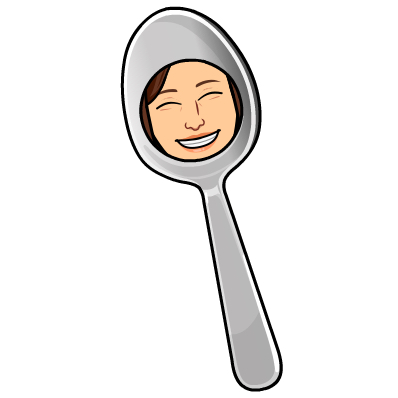
I’ve said it before, and I’ll say it again, pronunciation is my least favorite skill to teach. Developing fun games and activities to practice is challenging, and I hate it when my students look half-comatose in class. I always figure that if I’m bored, they’re bored, and bored students (and teachers!) are never a good thing.
Thankfully, I do have a few fun games for practicing pronunciation, and I’ve shared many of them in the past.
- Fishing for Regular Past Tense Verb Pronunciation (card game)
- Regular Past Tense Pronunciation Packing (board/card game)
- Sliding Sorts (both -d/-ed and -s/-es ending versions available)
- I’m Out! (-s/-es ending practice)
Today, I’d like to share another game to practice pronunciation with you, Spoons. I have two versions, one for the pronunciation of -d/-ed regular verb endings and one for the pronunciation of -s/-es endings. Both games are free downloads at the bottom of this post, along with links and downloads for other free games to practice the same skills.
Spoons: The Game

Spoons is not a new game in my classroom or on the blog. In April 2021, I shared about Collective Noun Spoons; in May 2023, I shared about Alphabet Spoons (a free download). Since both posts include the full rules for the traditional game and an alternative, less competitive version, I’ll only give a brief overview here.
The goal of Spoons is to collect a set of cards that match a given criteria and then sneak a spoon from the center of the playing area. Once other players notice a spoon has been taken, they also race to grab one. One person will be left without a spoon and gain a letter. Once a player has gained all the letters to spell SPOONS, he/she is eliminated from the game. Play continues until only one player remains and becomes the winner. The game tends to be highly competitive; many a spoon has been bent in my classroom (which is why I recommend using metal spoons rather than plastic ones that break), and since bloodshed is not an uncommon occurrence, I always make sure to have a box of Band-Aids on hand when we play.
In Regular Past Tense -d/-ed Ending Spoons, students try to be the first to collect a set of four cards that share the same pronunciation (/d/, /t/, /Id/) of the final -d/-ed sound.
In Final -s/-es Pronunciation Spoons, students try to be the first to collect a set of four cards that share the same pronunciation (/s/, /z/, /Iz/) of the final -s/-es sound.
Both game versions are free downloads from the bottom of this post or TPT (click the pictures). Both downloads include directions to play traditional Spoons, directions for a less competitive alternative version, the game cards, and a reference sheet for students to use to check their pronunciation. The Final -s/-es Pronunciation Spoons game cards also have pictures for each word to aid vocabulary acquisition.
Conclusion
The traditional version of Spoons has become highly popular, especially with my “younger” teenage and adult students. My “older” students, especially the female ones, tend to prefer the alternative version that doesn’t require grabbing spoons and potentially ending up with a bleeding scratch. In my experience, letting students group themselves based on which version they prefer works well. Having two different versions being played simultaneously hasn’t been a problem for my classes. Download one or both of the games and try them with your students. Happy teaching, everyone!


